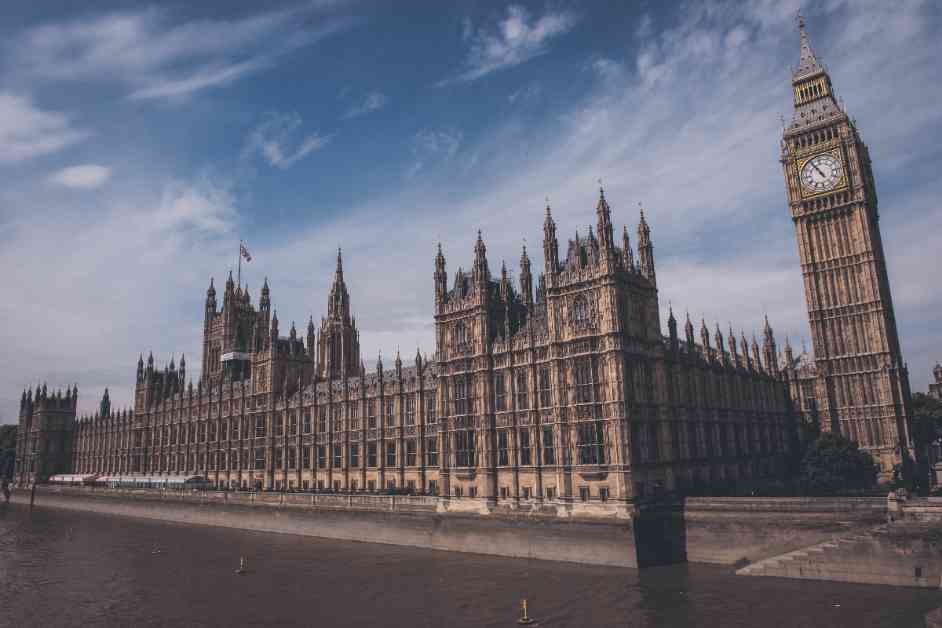Lib Dems Call for Fairer Parliamentary Procedures
In a bid to increase their influence in Parliament, the Liberal Democrats are advocating for changes to the current rules that they believe disproportionately favor the larger opposition party, the Conservatives. With the Lib Dems being the third biggest party in Parliament, Chief Whip Wendy Chamberlain is pushing for a more equitable allocation of Prime Minister’s Questions and debating time in the House of Commons.
Chamberlain highlighted the increased responsibility that comes with being the third party and emphasized the party’s commitment to being a constructive opposition. She expressed excitement about the upcoming opportunity to vote on Liberal Democrat amendments to legislation and the prospect of their first opposition day debate, where they control the parliamentary timetable.
Challenging the Status Quo
The current rules in Parliament have traditionally given more prominence to the largest opposition party, which has been the Conservatives for many years. However, with the gap between the second and third parties narrowing significantly in the recent election, the Liberal Democrats are questioning the fairness of this arrangement. Chamberlain pointed to the shifting dynamics of the multi-polar Parliament as an indication that it may be time to reconsider how Commons rules are structured.
The Hansard Society’s research on the changing composition of Parliament further supports the need for reform. Historically, the Official Opposition has held the majority of seats on the opposition benches, but the Tories’ decreased share of these seats post-election raises questions about the existing power dynamics. Chamberlain sees this as an opportunity to recalibrate Parliament to better reflect the current electoral reality and ensure that all parties have a fair chance to influence decision-making.
Potential Reforms for a More Inclusive Parliament
As the Lib Dems advocate for changes to the House of Commons rules, they are exploring potential reforms that could level the playing field and enhance the functioning of Parliament. By embracing the concept of a multi-polar Parliament, they are open to implementing adjustments that align with the new electoral landscape. This could involve revisiting the allocation of speaking time, question opportunities, and other procedural aspects to ensure that all parties, regardless of size, have a meaningful role in shaping policy and holding the government to account.
Chamberlain’s commitment to securing these changes reflects the party’s dedication to making Parliament more responsive to the diverse voices and perspectives represented within it. By fostering a more inclusive and collaborative environment, the hope is that better decisions will be made that positively impact the lives of all citizens. This vision aligns with the principles of democracy and effective governance, where transparency, accountability, and fairness are paramount.
In response to the Lib Dems’ advocacy for parliamentary reforms, the Conservative Party has raised concerns about the potential implications of these changes. Conservative Party chairman Richard Fuller expressed skepticism about the Lib Dems’ approach, suggesting that their collaboration with the Labour Party may undermine the effectiveness of opposition to the government.
Fuller emphasized the importance of maintaining a strong Conservative presence in Parliament to challenge Labour’s policies and offer alternative viewpoints when necessary. This perspective underscores the ongoing debate about the role of opposition parties in holding the government to account and ensuring robust debate and scrutiny of legislative proposals.
In conclusion, the Liberal Democrats’ push for changes to Commons rules represents a significant effort to enhance their influence and contribute meaningfully to the legislative process. By advocating for a more equitable distribution of parliamentary resources and opportunities, they are seeking to create a more inclusive and representative system that empowers all parties to participate fully in the democratic process. As the dynamics of Parliament continue to evolve, it is essential to adapt the rules and procedures to reflect these changes and uphold the principles of fairness, transparency, and accountability in governance.












